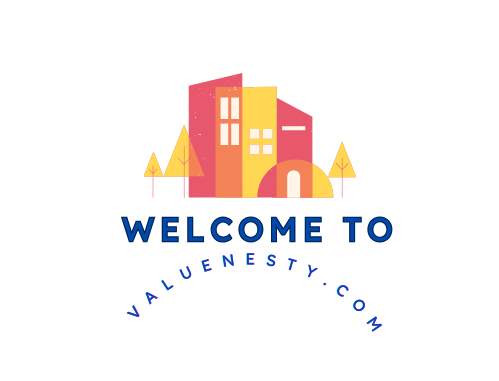introduction:
Renting out your house can be a lucrative venture, whether you’re looking to make a little extra income or turn your property into a long-term investment. However, to maximize your profit potential, you need to approach the rental process strategically. This comprehensive guide will walk you through the steps of renting out your house, from preparing your property to managing tenants, all while ensuring you achieve the best financial outcome.
1. Understanding the Rental Market:
Before diving into the renting process, it’s essential to understand the local rental market. Researching your area will provide insights into the types of properties that are in demand, the average rental prices, and the demographic of potential tenants. Here are a few steps to help you gauge the market:
Analyze Comparable Rentals
Look for rental listings similar to your property. Note their features, square footage, and rental prices. Websites like Zillow, Craigslist, and local real estate platforms can be invaluable resources. Pay attention to how quickly these properties are rented out, as this can give you a sense of the demand.
Consider Seasonal Trends
Rental demand can fluctuate based on the season. In some areas, summer may see a surge in rentals, especially near colleges or tourist destinations. Understanding these trends can help you time your listing effectively.
Identifying who your potential tenants might be is crucial. Are you accommodating families, young professionals, or students?Each demographic has different needs and preferences that can influence how you prepare and market your property.
2. Preparing Your Property:
The first impression is often the most lasting.Ensuring your house is in excellent condition is essential for attracting quality tenants and maximizing your rental income.
Clean and Declutter
Before showing your house, conduct a thorough cleaning. Consider hiring professionals for deep cleaning services, especially for carpets and upholstery. A clean, decluttered space allows potential tenants to envision themselves living there.
Make Necessary Repairs
Address any outstanding maintenance issues, such as leaky faucets, broken appliances, or peeling paint. A well-maintained property not only attracts tenants but also justifies a higher rental price.
Enhance Curb Appeal
The exterior of your home is just as significant as the interior.Simple upgrades like landscaping, a fresh coat of paint, or new house numbers can significantly enhance curb appeal and draw in potential renters.
Furnish or Unfurnished
Decide whether you want to rent your house furnished or unfurnished. Furnished rentals can command higher prices and attract short-term tenants, while unfurnished rentals may appeal to long-term tenants looking for a home.
3. Setting the Right Rent Price:
Pricing your rental property correctly is crucial for maximizing profit. Setting the price too high may scare away potential tenants, while pricing it too low can diminish your earning potential.
Consider the 1% Rule
A common guideline in real estate is the “1% rule,” which suggests setting the monthly rent at approximately 1% of the property’s value. While this is a general guideline, local market conditions should play a significant role in your decision.
Factor in Expenses
Don’t forget to account for ongoing expenses when determining your rental price. This includes property taxes, insurance, maintenance costs, and property management fees if applicable.
Be Flexible
If you’re struggling to attract tenants, consider being flexible with your pricing. Offering the first month rent-free or including utilities can make your listing more appealing without permanently lowering the rent.
4. Marketing Your Property:
Once your house is ready and the rent price is set, it’s time to market your property effectively. A well-crafted marketing strategy can significantly increase your chances of finding quality tenants quickly.
Create an Attractive Listing
Your listing should include high-quality photos and a detailed description of the property. Highlight unique features, amenities, and nearby attractions. Consider mentioning anything that makes your house stand out from the competition.
Utilize Online Platforms
List your property on popular rental websites, such as Zillow, Apartments.com, and Craigslist. Social media platforms like Facebook Marketplace can also be useful for reaching a broader audience.
Consider Professional Help
If marketing isn’t your strength, consider hiring a real estate agent or property management company. They have the expertise and resources to effectively market your property and can save you time and effort.
5. Screening Potential Tenants:
Once you start receiving inquiries, screening potential tenants is crucial to ensuring you find responsible renters who will pay on time and take care of your property.
Conduct Background Checks
A thorough background check should include credit history, rental history, and criminal background checks. This can help you assess whether a tenant is financially responsible and a good fit for your property.
Verify Employment and Income
Confirming that a tenant has a stable job and sufficient income is essential. A common rule is that the tenant’s monthly income should be at least three times the rent.
6. Drafting a Comprehensive Lease Agreement:
A well-written lease agreement is crucial for protecting your rights as a landlord and outlining the responsibilities of your tenants.
Include Key Terms
Your lease should include essential terms such as the rent amount, payment due date, duration of the lease, security deposit, maintenance responsibilities, and any rules regarding pets or smoking.
Specify Maintenance Responsibilities
Clearly outline who is responsible for what in terms of maintenance and repairs.This can help avoid misunderstandings and conflicts in the future.
Review Local Laws
Familiarize yourself with local landlord-tenant laws to ensure your lease agreement complies with legal requirements. This is particularly important regarding security deposits, eviction processes, and tenant rights.
7. Managing Your Rental Property:
Effective property management is essential for maintaining your investment and maximizing your profit.
Establish a Relationship with Tenants
Good communication with your tenants fosters a positive relationship and encourages them to take better care of your property. Be approachable and responsive to their concerns.
Regular Maintenance
Stay on top of maintenance issues to prevent small problems from becoming costly repairs. Conduct regular inspections and encourage tenants to report any issues promptly.
Handle Rent Collection Efficiently
Establish a reliable rent collection process. Consider using online payment systems to make it easy for tenants to pay their rent on time.
8. Dealing with Challenges:
Renting out your house can come with its challenges.Being ready can assist you in handling these situations more efficiently.
Handle Late Payments Professionally
If a tenant is late on their rent, approach the situation professionally. Communicate with them to understand their circumstances and work out a plan if necessary.
Respond to Tenant Complaints
Address tenant complaints promptly and professionally. This can prevent conflicts and encourage tenants to renew their leases.
9. Consider Long-Term Strategies:
As a landlord, thinking long-term can lead to greater financial stability and profit.
Explore Tax Benefits
Consult with a tax professional to understand the tax benefits of rental property ownership. Deductions for mortgage interest, property taxes, and depreciation can significantly impact your overall profit.
Invest in Improvements
Consider investing in improvements that can increase your property’s value and rental income. This may include renovations, energy-efficient upgrades, or adding amenities like laundry facilities.
Keep an Eye on Market Trends
Stay updated on market trends and modify your strategy as needed.Understanding when to sell or refinance can also maximize your profit potential.
Conclusion
Renting out your house can be a rewarding venture, both financially and personally. By understanding the rental market, preparing your property, setting the right price, effectively marketing your listing, and managing your tenants diligently, you can maximize your profit potential. While challenges may arise, being proactive and informed will help you navigate the rental landscape successfully. With careful planning and management, you can turn your property into a steady source of income.
faqs:
1. What should I consider before renting out my house?
Before renting out your house, assess your financial situation, local rental market conditions, and your willingness to handle tenant management. Consider the potential impact on your property’s value and whether you’re prepared for the responsibilities of being a landlord.
2. How do I determine the right rental price?
To set the right rental price, analyze comparable properties in your area, consider the “1% rule” (charging approximately 1% of the property’s value), and factor in your expenses like property taxes and maintenance. Research seasonal trends and be flexible if necessary to attract tenants.
3. How can I enhance the appeal of my rental property?
Enhancing your property’s appeal involves thorough cleaning, making necessary repairs, and improving curb appeal with landscaping or fresh paint. Consider whether to furnish the property, as furnished rentals can attract a different demographic and command higher rents.
4. What are the key steps in marketing my rental property?
To effectively market your rental, create an attractive listing with high-quality photos and detailed descriptions. Utilize online platforms like Zillow and Craigslist, and consider using social media for broader reach. If needed, hire a real estate agent for professional marketing assistance.
5. How do I screen potential tenants effectively?
Screening potential tenants involves conducting background checks (credit, rental history, and criminal records), verifying employment and income (aiming for three times the rent), and requesting references from previous landlords or personal contacts. This helps ensure you choose responsible tenants.
6. What elements should be included in a lease agreement?
A comprehensive lease agreement should include key terms such as the rent amount, due dates, lease duration, security deposit details, maintenance responsibilities, and any rules regarding pets or smoking. Ensure it complies with local landlord-tenant laws to protect your rights.
7. How do I manage my rental property once it’s rented out?
Effective property management involves maintaining good communication with tenants, addressing maintenance issues promptly, and implementing an efficient rent collection process. Conduct regular inspections and be proactive about resolving tenant complaints to foster a positive relationship.
8. What challenges might I face as a landlord?
Common challenges include late rent payments, dealing with difficult tenants, and maintaining the property. Be prepared to handle these issues professionally and familiarize yourself with the eviction process if necessary, while always striving for open communication with your tenants.
9. How can I maximize my long-term profits as a landlord?
To maximize long-term profits, consider exploring tax benefits related to rental properties, investing in property improvements, and staying informed about market trends. This knowledge can help you make strategic decisions about when to raise rent, sell, or refinance your property.
10. Should I hire a property management company?
Hiring a property management company can be beneficial if you prefer to minimize your hands-on involvement or lack experience in property management. They can handle tenant screening, maintenance, and rent collection, but be sure to weigh their fees against your potential rental income.

